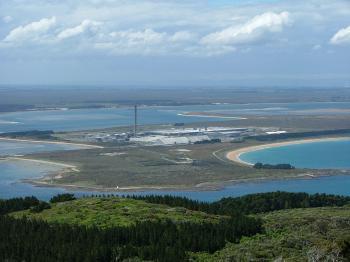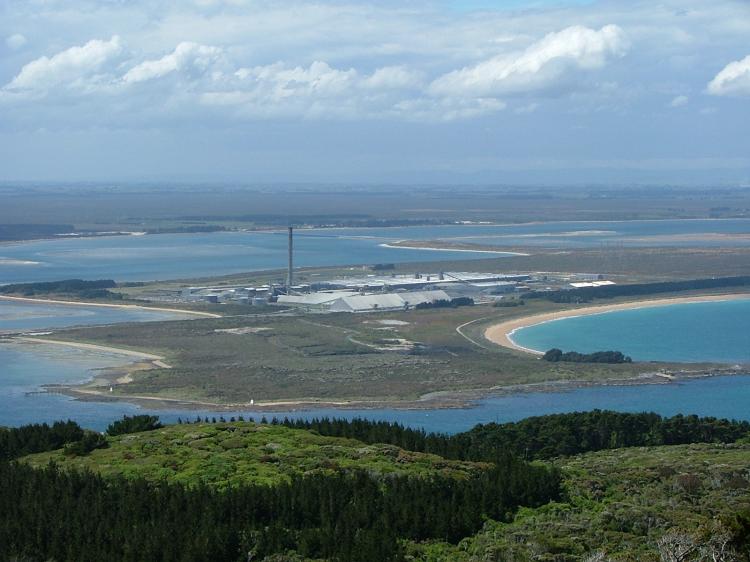Thousands of jobs could be lost in New Zealand once the Emission Trading Scheme (ETS) starts to kick in says an economic report.
The ETS, under the Climate Change Bill, was passed urgently with more than 700 amendments early September—63 votes to 57—and will phase in over the next four years.
The controversial legislation, combined with the Kyoto Protocol, could lead to a loss of 22,000 jobs and $900 million in gross domestic product (GDP) in the short term, according to a New Zealand Institute of Economic Research (NZIER) report released earlier this year.
The report said that in the short term the cost of the ETS will be eight times higher than paying for costs incurred under the Kyoto Protocol.
Elaborating on why the costs will be high, the report says, “It’s a combination of costs to business, contraction in the domestic economy, loss of competitiveness internationally, reduction in wages, contraction in household spending, and some increase in prices.”
Export industries, especially the agricultural sector, followed by basic metals manufacturing, would be the most affected, the report said. No other emissions trading scheme in the world currently includes agriculture.
“We are internationally recognised as one of the most efficient agricultural producers in the world but New Zealand is contemplating penalising our farmers while allowing other, inefficient farming systems overseas to continue unchecked. That doesn’t make sense,” NZIER said in the June report.
Rural areas will be hit harder than urban areas under the scheme, according to the report, and by 2012 the most heavily affected will be the regional economies of Northland (petroleum refining), Southland (aluminium manufacturing and agriculture) and the West Coast (coal mining).
Regional employment would also be affected with industries such as mining on the West Coast expected to lose almost 9 percent of the 850 jobs.
Tiwai Point Aluminium Smelter
Rio Tinto, owner of the Tiwai Point aluminium smelter plant near Invercargill, told TV3 earlier this month, that the ETS could put thousands of jobs at risk in the region.
The company provides employment for 4000 people and contributes $3.7 billion to the New Zealand economy each year.
It is the ‘cleanest and greenest’ of the 200 aluminium smelters worldwide and Rio Tinto said that they will take jobs with them if they are forced to relocate overseas.
“There is no gain for the climate if Rio Tinto departs New Zealand and manufactures its aluminium in the Philippines, or if Holcim Cement closes its works and imports cement from China to New Zealand,” said Nick Smith, National Party, spokesperson for climate change.
“It will encourage businesses to relocate overseas, taking both jobs and emissions with them.”
New Investment in NZ May be Stifled
Catherine Beard, executive director of the Greenhouse Policy Coalition, said an increase in the cost of carbon would flow through to any company with energy as a large part of their costs.
“You become uncompetitive in New Zealand due to the higher cost structure,”she said.
The Act provided free allocation of units to companies that were trade-exposed and energy-intensive,” she explained, but there remained a question around whether that was going to be adequate to maintain competitiveness.
An emission unit can represent a number of greenhouse gases. Every tonne of greenhouse gas emitted by an industry will incur a penalty of one emission.
“There is a concern amongst companies that they are not going to have enough free allocations,” Ms Beard said. “Free allocations are capped and there is a limit on the amount available”.
Companies are not going to continue to grow, she added, saying that it sends a “negative signal for new investment in New Zealand”.
Glenbrook Steel Mill
The Glenbrook Steel Mill, a major employer in the region drawing from the South Auckland and Franklin district areas, said that the company’s future could be in jeopardy under the provisions of the scheme.
“Steel cannot be made without emitting CO2. There is no alternative technology for making new steel.
Eighty percent of New Zealand Steel’s emissions come directly from this iron and steel making process,” Glenbrook said in a submission to the Select Committee on Emissions Trading.
New Zealand Steel said they have been implementing sustainable practices for 40 years.
“Off-gas recycling co-generation, part of the $150 million spent on green projects since 1990, now provides 60 percent of the company’s electricity requirements.”
Company projections include investing $1 billion in Glenbrook over the next 10 years but this hinges on the company remaining competitive under the ETS.
Concern NZ Too Small to Take Lead
Unions have also expressed concern over the impact of the ETS on jobs at the Glenbrook Mill.
Engineering, Printing and Manufacturing Union leader Andrew Little, told Carbon News that it was important to help the company reduce carbon emissions while allowing it to remain competitive.
“The Glenbrook Mill is one of the most important manufacturing operations in New Zealand,” he said.
New Zealand Steel wanted “the operation exempted from the ETS until its international competitors are subject to the same type of regimes.”
Most overseas companies producing and exporting steel do not have to pay carbon emissions costs.
Act Party founder and former Finance Minister Roger Douglas said, “New Zealand shouldn’t be a leader when those countries that are responsible for seventy-five per cent of emissions aren’t doing something about it.”
“New Zealand should obviously play its part. When other countries are not doing anything about it, why should New Zealand, who is only a dot on the map be doing anything?”
“Already you can see that steel mills in Germany are going to be subsidised and why should we put ourselves at a total disadvantage.”
Support for ETS
The ETS was supported by Labour, the Progressive Party, Green Party and New Zealand First.
Green Party Co-Leader Jeanette Fitzsimons welcomed the passing of the Bill adding however, that it was only the first step and there was still much more work to be done.
“First, New Zealand must sign up to an international target of limiting warming to no more than two degrees,” she said in a speech to Parliament.“Then we need to adopt real targets within New Zealand.”
Ms Fitzsimons said the most important target of all was the date at which emissions within New Zealand leveled off and started to fall.
“That turn-round point is incredibly important. The later it happens, the more ground we will have to make up in the future,” she said.





